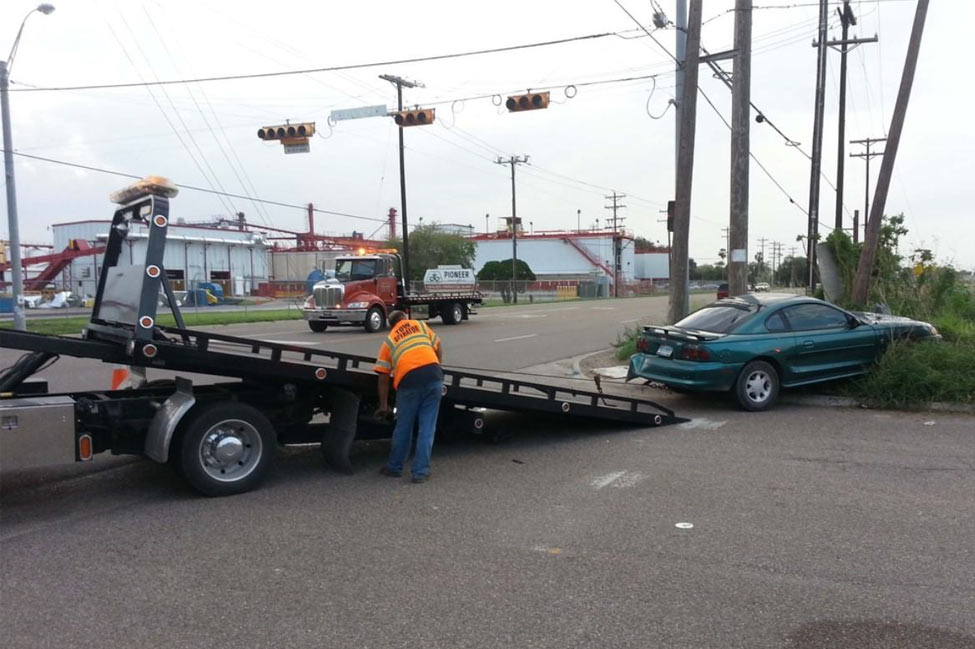Effectively Handling Towing Customers
Noted author Maya Angelou once said, “I’ve learned that people will forget what you said, people will forget what you did, but…people will never forget how you made them feel.”
In the towing business, you work hard to get people out of bad situations…You’re a problem-solver and proud of it.
Sure…I get it. You know your stuff.
But you’ve got to remember you’re also in the service industry, which means you must know how to effectively relate with people when those bad things happen.
And, while it’s tempting to push customer service into the background because we assume that most customers make buying decisions based on cost and not how well they were treated, the facts don’t bear that out.
Think about the businesses you steer clear of now because you feel you were overcharged at some point.
Can you think of any business whose product or service you’ve used in the past, but because the price got too high, you’ve gone in a different direction?
Me neither. Most businesses don’t stay in business very long if they’re pushing their customers away due to overpricing.
Now, consider the businesses you will no longer frequent because you were treated poorly. Did you leave them a bad review, or did you just stop going there? For me, I just stopped doing business with them.
I can recall a handful of bad experiences, but one that really sticks out for my business was something that could have been avoided. It was a mistake that got blown out of proportion at a collision repair shop we worked with.
After working with this business for more than a decade, we had a falling out that came out of nowhere. As with the other repair shops we worked with, we would regularly tow wrecked cars from our storage lot to their place for repair, and as usual, we would pass our towing and storage bill onto them for reimbursement.
Then, one day, as I was going through the paperwork, I came across an invoice that didn’t add up. Our tow truck operators are responsible for adding storage and a second tow fee to the original invoice. Then, they’re required to add it all up and get a signature from someone at the shop.
Well, the driver who finished this invoice made a mistake when adding it all up…it happens.
So, I called the shop to ask that they change the ticket to reflect the true charges. Well, you might have thought I asked them to change their entire accounting system because the treatment I received was horrendous. His rude comments about my driver and the manner in which he badmouthed our entire business operation were completely over the top.
I was totally taken aback by the interaction, and as you might imagine, that was the last time we towed anything to that body shop without being paid in advance.
But I did get something out of this experience. It taught me a lesson I’ll never forget.
Effectively Handling Towing Customers During Difficult Times
As tow company owners, we believe our customers and those we work alongside make buying decisions based on the quality of the work we do. Our expertise at removing a vehicle from atop a retaining wall without damage, coming out at 2:00 AM to recover a rolled-over tractor-trailer or moving a disabled car into a work bay at no charge.
All this stuff should be enough to thoroughly impress anyone paying attention.
Professionalism breeds loyalty and repeat business…Right?
Unfortunately, it isn’t enough.
Of course, why should it be?
Our customers are not living their lives for us.
While we regard what we do as highly important and a valuable service, the reality is we are ancillary to our customers’ everyday needs.
To them, we exist on the fringes as an inconvenient necessity.
So, to relate effectively with your customers, you must completely take yourself out of the equation. To do this, look at each situation as though you were a fly on the wall. But be warned, when you do this, you might see things you don’t want to. You could react with short-term thinking, like you might consider thinking about a crazy AAA towing experience you may have had. Or you could incorporate long-term thinking and grow your business.
Some of you will learn how towing customers think and understand that your services are seen as a commodity. Something customers can get anywhere from anybody, like a gallon of milk.
But that doesn’t have to be your fate.
To avoid becoming a commodity, try putting yourself in your customer’s place before he needed your services.
What was he thinking about moments before the alternator went out at 65 miles per hour on the freeway? How were things going before his 7-year-old left the back door open on the Suburban overnight? What was happening right before the elderly gentleman glided his 1998 Olds 88 into your customer’s lane, causing him to lose control and wreck?
Before all these events occurred, your customer’s life was smooth sailing. Relatively speaking, he was in complete control.
He knew what time the office meeting was, what time to pick up the kids, and where he was going for dinner that night.
But once this particular problem arose, once you became necessary…all hell broke loose. And, even though the problem is what caused the breakdown, in his world, because you are there, you are also part of the problem.
I know. I know.
It’s a hard thing for a problem-solver to accept that his customer believes he’s part of the problem.
Just as it is hard for your towing customer to swerve outside of everyday life to take care of an unexpected issue, it’s hard for us to step outside of ourselves and accept their perception of the situation.
But you gotta take it.
You need to suck it up and realize that, in their minds, you’re just a speed bump on the way back to normal. But the good news is you have the ability to give them what they’re looking for when bad things happen…Control.
But how do you do that?
How do you empower those you’re charged with helping? How do you give them the perception of control?
While it’s not hard to do, the answer is different in almost every situation. But the faster you can get your customer back to some semblance of balance and control in his life, the happier he’s going to be. Once you figure this part out, the rest is gravy.






Leave A Comment